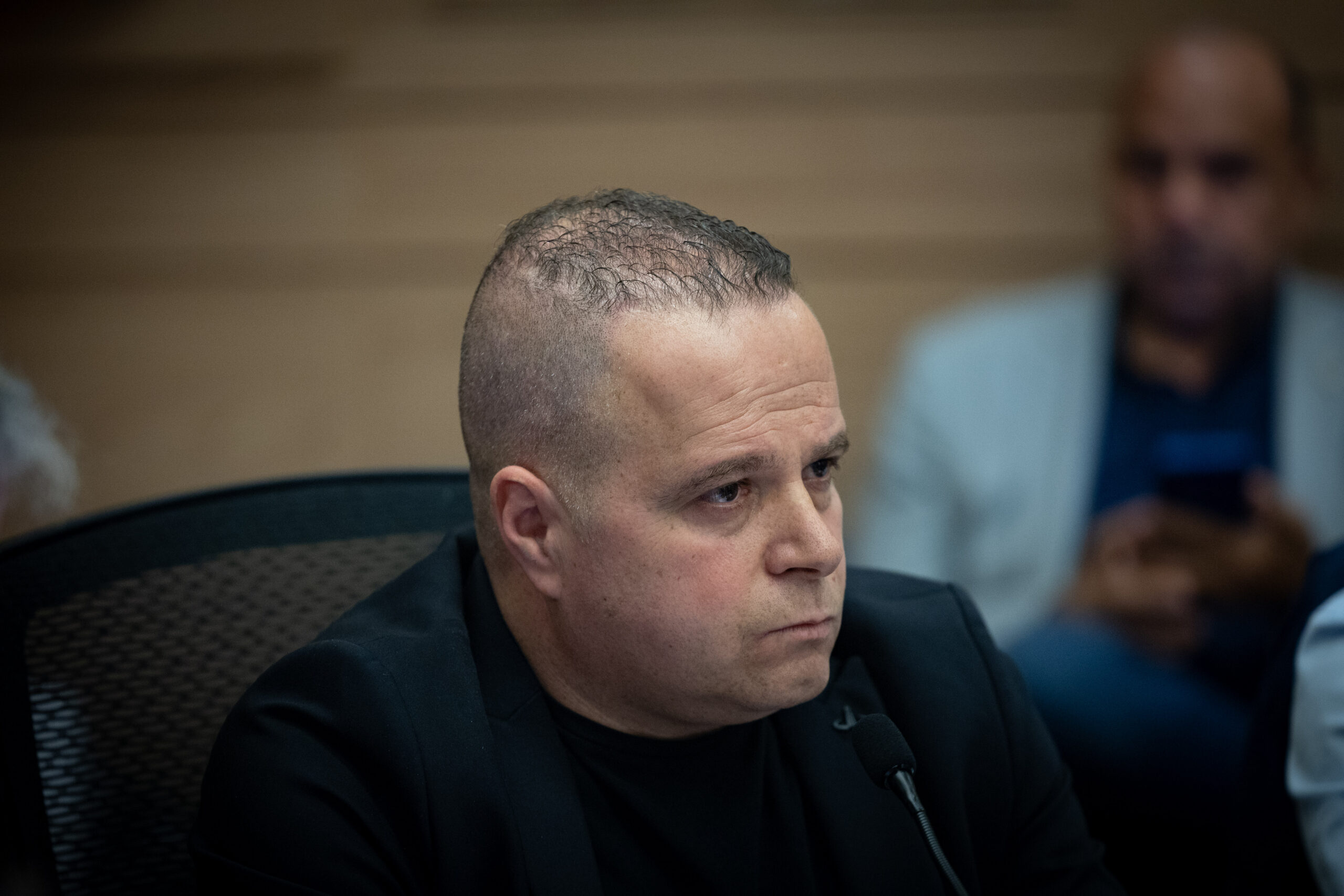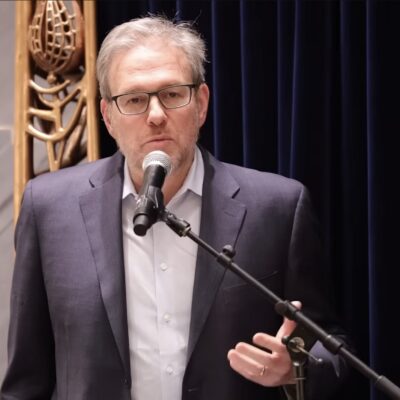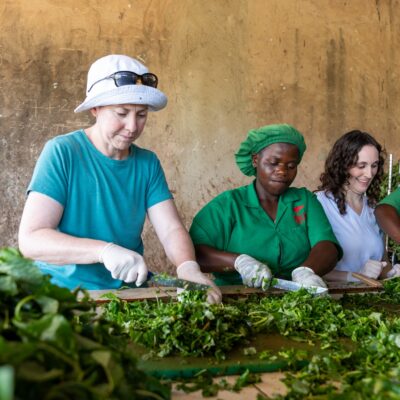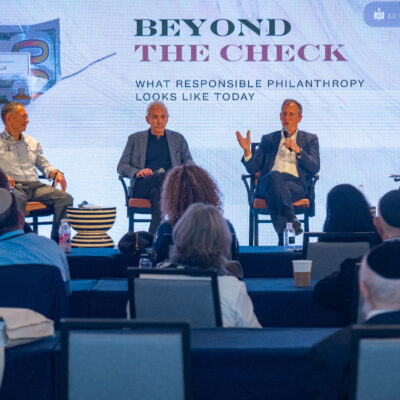Your Daily Phil: JFN’s Andrés Spokoiny to donors: Pace yourself
Good Tuesday morning.
In today’s edition of Your Daily Phil, we interview Andrés Spokoiny about how Jewish funders are responding to the Israel-Iran war and report on the costly postponement of this summer’s Maccabiah Games. We examine the UJA-Federation of New York’s recent $10 million emergency grant to war-related Israeli causes, and look at how LGBTQ Jews are marking Pride Month amid a rise in antisemitism. We feature an opinion piece by Manette Mayberg with ideas for how to elevate the Jewish education experience. Also in this issue: Ilan Amit, Semyon and Janna Friedman and Shuly Rubin Schwartz.
What We’re Watching
The Israeli social policy Taub Center think tank is hosting a Zoom event at noon ET today to discuss the current situation in Israel.
What You Should Know
Five days into Israel’s conflict with Iran, scenes of destruction from direct ballistic missile hits in Tel Aviv and other metropolitan centers and a climbing number of civilian casualties have sent shockwaves through the Israeli and Jewish communities.
As Diaspora funders look for ways to provide support, eJewishPhilanthropy’s Nira Dayanim spoke with Andrés Spokoiny, president and CEO of the Jewish Funders Network, about crisis funding “do”s and “don’t”s, the best channels through which to direct giving and takeaways from the aftermath of the Oct. 7 terror attacks.
The interview has been edited for clarity.
Nira Dayanim: What are you hearing from the philanthropy field?
Andres Spokoiny: As always, when there’s a crisis in Israel, people are asking how they can help. The truth is that this is an evolving crisis, and the ways to help are still being figured out. We are trying to guide them as best as we can, in coordination with the ideas from the Home Front Command and the relevant authorities and the civil society and the like. So far, I can tell you about the needs that are slowly emerging, knowing that this can change tomorrow.
In a crisis like this, we recommend that funders pace themselves. We don’t know if the crisis is going to last for a week or for a year.
ND: What are some of the funding needs that are already coming up? What are some “do”s and “don’t”s when responding to a crisis like this?
AS: There are a number of very punctual needs. For example, there are people stranded in Israel and outside of Israel, like participants on Birthright trips and volunteers, and Israelis who can’t go back home. These people will need assistance. But those are immediate issues.
Secondly, this crisis comes after the cumulative effect of years of enormous stress and disruption. So it’s not just this crisis, it’s compounded with what we’ve been living through in the last couple of years. So when we talk about mental health, for example, this is yet another layer of trauma and stress that piles onto the existing trauma.
Another thing that we tell people is that in moments of crisis, you need to look at the most vulnerable in society, because they generally suffer the most…
It is important to check on your grantees, to offer them support, to tell them that you’re there for them…
One particular issue that we’re looking at is that many communities, especially in the Arab sector, don’t have appropriate shelters. … During the last couple of years, when we were receiving rockets from Hezbollah and Hamas, the solution was to create mobile shelters. But those are not adequate against, you know, ballistic missiles. So, folks are scrambling to provide that.
ND: What channels do you recommend for those looking to provide immediate support, and to what degree is that still a developing situation?
AS: It’s still developing as always. I would suggest for others to be… not suspicious, but cautious when it comes to pop-up initiatives. Generally, it’s much better when in the acute phase of a crisis to default to well-established organizations that have a presence on the ground, that have an infrastructure, and paid staff and the like.
There is always a mushrooming of grassroots initiative, and that’s great, but for overseas funders those are very hard to parse out, and in many cases, they’re run by people with the best of intentions, but aren’t necessarily effective without infrastructure.
We’re only a few days into this. So what most funders need to do now is to stay tuned.
TIL NEXT YEAR
Maccabiah Games forced to postpone event amid Israel-Iran war, will cost ‘millions’

America’s first representatives for the Maccabiah Games were set to hit the ground in Israel this week. Then came the news that the games were being postponed until next year, in the wake of the Israel-Iran war. Competitors have been preparing for the event for years, Marshall Einhorn, CEO of Maccabi USA, the American arm of the movement, told Jay Deitcher for eJewishPhilanthropy, and, in less than two weeks, over 500 American athletes would have arrived, hungry to experience Israel with competitors from around the globe. “It’s sad news that it’s come to this,” he said. “It’s certainly understandable.”
Safety costs: The postponement announcement was made less than a month before the 22nd Maccabiah Games opening ceremony was set to take place in Teddy Stadium in Jerusalem. The games would have run from July 8-22. After the Israeli government extended nationwide emergency measures through June 30, imposing restrictions on public gatherings, “we were forced to come to that decision,” Amir Gissin, CEO of Maccabi World Union, told eJP. Even if everything returned to normal by the 30th, Maccabi World Union wouldn’t have time to prepare for the July 10 opening ceremony or to welcome nearly 80% of the athletes who arrive a week before the event to tour the country. Because payments had already been placed for venues, hotels and vendors, “It will be a tough negotiation [to get money back],” Gissin said. “It’s too early to say how it will end. What is certain is that we will be missing several million dollars that we will have to fundraise for next year.”
SENSE OF URGENCY
Having shifted to addressing Israel’s ‘chronic’ issues, UJA-Federation turns back to emergency needs with $10 million grant

Citing “an anxiety in Israel that we need to understand” in the wake of days of missile strikes from Iran, the UJA-Federation of New York has authorized $10 million in emergency funding to support a range of needs in Israel, its CEO, Eric Goldstein, told eJewishPhilanthropy’s Nira Dayanim.
Back to crisis: Goldstein explained that, 20 months after the Hamas attack, the federation’s funding was starting to shift its focus to “chronic needs,” rather than emergency needs. Following the Iranian missile strikes, the organization, and the Jewish community as a whole, is pivoting back to emergency funding. “Unfortunately, as a broader community, we’ve become very practiced in crisis. There’s nothing linear about this process. We’re now back to a type of more first-stage emergency, which is providing for emergency needs for people who are suddenly again displaced and have needs that they didn’t have on Thursday,” said Goldstein. “But what we’ve seen time and time again is, as these crises grow, so does the community’s inclination to help support and address the need.”
PRIDE AND PREJUDICE
Proud, but pushed out: Why LGBTQ Jews are creating Pride spaces of their own

In early June, Rabbi Eleanor Steinman wrote to members of Temple Beth Shalom, the Reform congregation she leads in Austin, Texas, sharing the synagogue’s plans to celebrate Pride Month with several events in June. Steinman also revealed that, for the first time in more than two decades, her congregation would not be marching in the Austin Pride parade, which event organizers say draws 200,000 people each August, because of concerns about antisemitism. “The Austin Pride organization took an antisemitic stance in the midst of the Pride Parade and Festival last year,” wrote Steinman, who is gay. Ahead of last year’s Pride parade, slides were leaked from a presentation in which Austin Pride organizers said hate speech against Jews wasn’t welcome, including “symbols, images or flags used by terrorist and hate groups.” It was part of an education campaign for queer activists as anti-Israel sentiment exploded in the queer community after the Oct. 7, 2023, Hamas attacks and the ensuing war in Gaza, as it did in many other progressive spaces, reports Gabby Deutch for eJewishPhilanthropy’s sister publication Jewish Insider.
Backfiring and backtracking: But the effort to educate about antisemitism backfired. Anti-Israel activists pressured Austin Pride to disavow that message. Austin Pride not only backtracked on barring those slogans; it issued a statement pledging to support the Boycott, Divestment and Sanctions movement and stating that the organization does not work with the Anti-Defamation League. In the months that followed, Jewish leaders and LGBTQ activists pushed Austin Pride’s leadership to consider changing this stance, but they did not. “Despite attempts to meet with Austin Pride since then, a coalition of Jewish leaders were unable to create an environment where we felt we would be both safe and respected as Jewish LGBTQ+ and allies,” Steinman wrote in the email. It was a remarkable statement, tinged with bitter irony: The synagogue first started marching in Pride so that LGBTQ congregants would feel that they could bring their full selves to the Jewish community. Now some of those same congregants feel that they need to suppress their Jewishness in order to fully belong in the queer community.
Read the full story here and sign up for Jewish Insider’s Daily Kickoff here.
READER RESPONDS
From feeding to dining: Reimagining Jewish education for a new generation

“In his June 11 op-ed for eJewishPhilanthropy, Jewish Future Promise’s executive director, Josh Schalk, asks whether our children would pass if the Torah had a report card — a question that goes to the heart of Jewish education today,” writes Manette Mayberg, trustee of the Mayberg Foundation and founder of the Jewish Education Innovation Challenge, in an opinion piece for eJewishPhilanthropy. “And like Schalk, I believe our challenge is not just about passing or failing a test — it’s about reimagining what it means to nurture the next generation of Jews.”
Three defining pillars: “When we treat education as ‘feeding’ students information for immediate wins, we risk leaving them spiritually hungry, searching elsewhere for meaning and connection. What if, instead, we offered a ‘dining’ experience — a curated, intentional journey that leaves students wanting to come back for more? This is the vision that guides our work at the Mayberg Foundation and the Jewish Education Innovation Challenge (JEIC). At our recent 2025 Innovators Retreat, a gathering in Seattle of more than 90 Jewish day school educators, leaders and funders, we identified three pillars that must define the future of Jewish education: student-centered learning; God-centered learning; and whole-school culture change.”
Worthy Reads
Safety for All: In The Times of Israel, Ilan Amit calls for action to address the shortage of bomb shelters and other critical services for Arab and Bedouin communities in Israel. “‘I can’t believe we’re having this same conversation all over again.’ That was the first thing a dear colleague said to me once we finally managed to reconnect. … Both of us are Jewish Israelis who have been working closely with Bedouin communities in the Negev for two decades, particularly in the unrecognized villages. Time and time again, we find ourselves in disbelief, confronted with what can only be described as the state’s ongoing neglect of its own citizens. … Today, as war rages between Israel and Iran and civilians across the country brace for missile attacks, the gaping disparity in civilian protection is no longer just a moral failing. It is a national emergency. Let us start with the facts. Nearly half – 46% – of Arab citizens in Israel have no access to a protected space, whether it be a reinforced room (Mamad) or a communal shelter. … Today, I ask you to stand with us. To see the gaps in shelter not as a Bedouin issue, or even an Arab issue, but as an Israeli issue. As a human issue. If we want a resilient society, we must ensure that no child, no elder, and no family is left exposed. Not in the Negev, not in Nazareth, not in Tel Aviv.” [TOI]
Stop the Violence: In The New York Times, Robert A. Pape, who has spent 30 years studying political violence, offers a warning and advice for today’s America. “We may be on the brink of an extremely violent era in American politics. Today’s political violence is occurring across the political spectrum — and there is a corresponding rise in public support for it on both the right and the left… What I fear is an increasing sense of mobilization between two opposed blocs — one that drives both protesters and government forces to become more militant as each seeks to impose its will on the other… Many Democratic and Republican leaders have condemned political violence — that is good. But they have almost always done so in separate statements. My research suggests that to de-escalate the political environment and reduce the risk of violence, America’s political leaders need to cross their political divides and make joint statements (and ideally joint appearances) that denounce all political violence, welcome all peaceful protest and call for respecting the rules, process and results of free and fair elections in the country… Most important, the American people — the ultimate power in the United States — need to stand against political violence.” [NYTimes]
Word on the Street
The Times of Israel interviews Birthright Israel participants and tour leaders who are stuck in Israel due to the closure of Israeli airspace from ongoing Iranian missile barrages…
Milwaukee police have arrested a 59-year-old man for breaking “several windows and a statue” on Sunday at Temple Menorah in the city’s Northridge neighborhood…
Chalkbeat interviews historian Natalia Mehlman Petrzela, who was tapped by the New York City Department of Education to develop a Jewish American history curriculum…
The Chronicle of Philanthropy spotlights six nonprofit workers who have been laid off in the wake of the Trump administration’s federal funding cuts…
Major Gifts
Semyon and Janna Friedman donated $15 million to Mount Sinai Medical Center in South Florida to create an eponymous Advanced Research Institute…
Transitions
Shuly Rubin Schwartz, chancellor of the Jewish Theological Seminary, announced yesterday at a board of trustees meeting that she is stepping down from her role next year. JTS says it is launching a search for Rubin Schwartz’s successor…
Jeff Rubin announced his upcoming retirement from The Washington Institute for Near East Policy, where he has served as communications director since 2011…
Robin Brandies has been appointed the next president and CEO of the Jewish Family Services of Greater Philadelphia, starting Sept. 1…
The Ruth & Norman Rales Jewish Family Services of Boca Raton, Fla., hired Sherryl Steinberg as its next chief philanthropy officer…
Pic of the Day
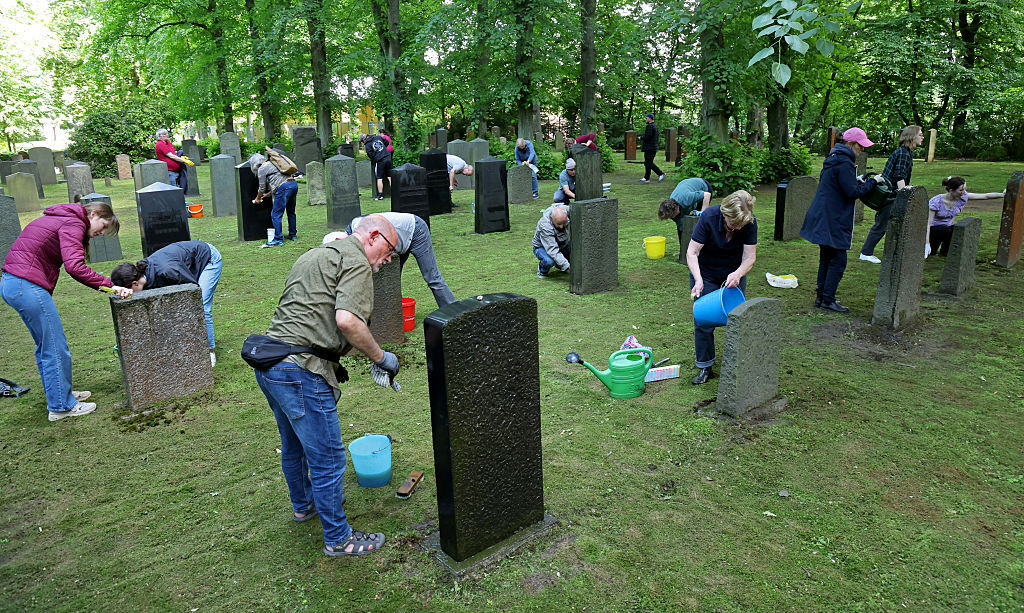
A group of volunteers cleans gravestones yesterday in the Jewish cemetery in Rostock, Germany, as part of a campaign organized by Rostock University’s Faculty of Theology, the local Jewish community and the Max Samuel House Jewish Heritage Center. The last such cleaning campaign took place in 2021.
Birthdays
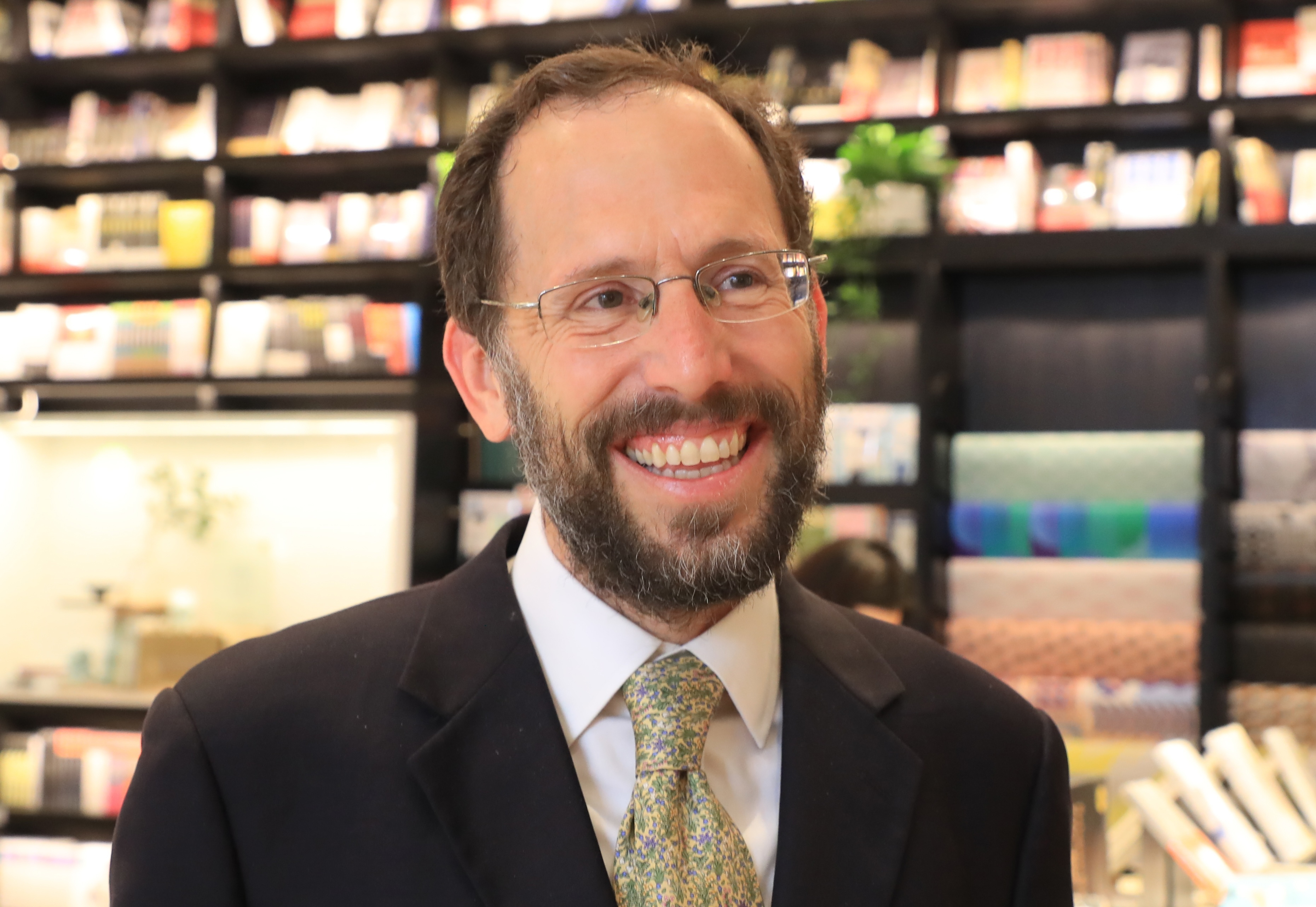
Active in interfaith peace initiatives between Judaism and Islam and in encounters for Jews with Eastern religions, Rabbi Yakov Meir Nagen (born Genack)…
Diplomat and attorney, undersecretary of state for International Security Affairs in the Carter administration, longtime U.N. special representative, Matthew Nimetz… Winner of the 2001 Nobel Prize in economics, professor at Georgetown and UC Berkeley, he is married to former Treasury Secretary Janet Yellin, George Akerlof… One of the world’s best-selling singer-songwriters over the course of seven decades, born Barry Alan Pincus, Barry Manilow… Former member of the Knesset for the Zionist Union party, Eitan Broshi… Chairman of the Federal Trade Commission during the Obama administration, Jonathan David (“Jon”) Leibowitz… Deputy administrator of the Federal Highway Administration during the first two years of the Biden administration, Stephanie Pollack… President of the San Francisco Board of Supervisors until earlier this year, Aaron Dan Peskin… Singer and composer, a pioneer of the Turkish and Arab music genres in Israel, Ofer Yoel Levy… Fashion designer, daughter of Reva Schapira, Tory Burch… Founder and chairman of Shavei Israel, Michael Freund… Comedian, actor, director, writer and producer, Michael Showalter … British historian, columnist and musician, Dominic Green, Ph.D…. International human rights attorney who serves as managing director of the law firm Perseus Strategies, Jared Matthew Genser… Screenwriter, television producer, director and voice actor, Matthew Ian Senreich… Advocacy, philanthropic and political counsel at Chicago-based Beyond Advisers, David Elliot Horwich… SVP for the economic program at Third Way think tank, Gabe Horwitz… Chief philanthropy officer of the Jewish Community Foundation and Jewish Federation of Broward County, Keith Mark Goldmann… Vice president of government affairs for the Conservation Lands Foundation, David Eric Feinman… Former rabbi of the Elmora Hills Minyan in Union County, N.J., now an LCSW therapist in private practice, Rabbi Michael Bleicher… New York City-based senior editor for The Hollywood Reporter, Alexander Weprin… Professional surfer and musician, his family owns Banzai Bagels on the Hawaiian island of Oahu, Makua Rothman… Founder and executive director of the Zioness Movement, Amanda Berman… Director of national outreach for the East at the New Israel Fund, Alexander Willick… Award-winning college football and basketball analyst for NBC Sports and SiriusXM, Nicole Auerbach… Member of the U.S. Ski Team’s alpine program, he competed for the USA in both the 2014 (Sochi) and 2018 (PyeongChang) Winter Olympics, Jared Goldberg… Senior art director at Business Insider, Rebecca Zisser… Shortstop for Team Israel at the 2020 Olympics, Scott Burcham… Actress best known for her roles in the CBS series “Fam” and the Netflix series “Grand Army,” Odessa Zion Segall Adlon… Washington-based freelance foreign media consultant, she is also a real estate agent, Mounira Al Hmoud…


 Add EJP on Google
Add EJP on Google
